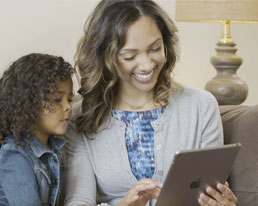after surgery care
Our team provides education to help you prepare for your child’s post-surgery needs, and in many cases will schedule your child’s follow-up clinic appointment before you leave the hospital.
After patients return home, our team continues to provide support and care. Talk to your doctor about any care you will need to provide when you take your child home. This may include changes in medicines, treatment, the need for special home care equipment or follow-up appointments. Your care providers will give you special instructions to follow once you and your child arrive home. Discharge planners are available to help coordinate your home-care needs.
If you have questions or need assistance, please call 937-641-3000 and ask for the surgery department, or refer to the number on your after visit instructions (either in MyKidsChart or printed). Please let your doctor know about any changes in child’s health after your child’s stay.
call us with any questions or concerns, particularly if your child...
- Has a fever over 101˚ F or that lasts longer than 24 hours
- Has signs of infection (swelling, redness, foul smell, drainage)
- Has not urinated or has no wet diapers for 8-10 hours after the procedure, or is complaining that they’re not able to do so
- Has excessive pain, nausea or vomiting
- Cannot be easily woken up
activity when your child gets home
Your child will need plenty of rest after their procedure. Do your best to keep things simple. Create a quiet and restful environment by:
- Encouraging your child to rest and take naps
- Offering quiet, restful activities like reading or watching movies
- Not overwhelming your child with guests
- Limiting activities like driving, biking and sports
preventing falls after surgery
Anesthesia and pain medications can make your child feel off balance and wobbly on their feet. For the first 24 hours after surgery and while your child is on prescribed pain medications, be extra careful to make sure your child doesn’t fall by:
- Supporting them when they walk or crawl
- Watching them around sharp corners or objects
- Helping them go up or down stairs
eating and drinking at home
Some kids may feel sick to their stomach after surgery. Start with ice chips, apple juice or Gatorade®. Then, if your child feels okay, they can eat plain foods like crackers and soup. When they are comfortable with those, they can go back to eating their regular diet.
caring for pain and discomfort
Every child feels pain and shows that they’re feeling pain differently. Your child will point to a pain scale so we know how much pain she or he feels. We may not be able to completely get rid of pain, but we can help make your child as comfortable as possible. You can track your child's pain using this tracking sheet. At home, you can help with their pain by:
- Changing your child’s position
- Encouraging rest
- Distracting your child with toys, music, movies, pacifiers, rocking and holding
- Giving pain medicine as your doctor orders
If your doctor prescribes medicine, you can give that medicine as it’s ordered. You can pick up medicine at our pharmacy or your own pharmacy.
easing behavior changes and anxiety
Your child may not be quite themselves after surgery. They may not sleep well, may be more moody or may have new fears. These feelings usually pass in a couple weeks. Be patient and give them some time. Try to keep a normal routine to help them start to feel like themselves again!
use medicine safely
All necessary prescriptions will be provided before you leave the hospital. Please ask about Dayton Children’s outpatient pharmacy options. You can track the medicines your child is taking by using this tracking sheet. Note the following suggestions for safe medication use:
- Reread the label when giving each dose.
- Ask your pharmacist to:
- Explain your child's medicine label.
- Suggest the best measuring device for liquids and powders.
- Look over medicine side effects.
- Double-check a refill prescription if it does not look the same as a previous prescription.
- Explain how you will know if the medication is working.
- Review foods to eat or not eat while taking the medicine.
- Make sure the child-lock caps on all medicines are in place..
- Fill prescriptions at the same pharmacy so the pharmacist gets to know your child's medicine history.
- Keep the medicine in the container it came in.
- Give the medicine to your child exactly as told by your doctor or pharmacist.
- If your child is not getting better or you have questions about any medicines, call the doctor.
talk to...
- Your child’s school teacher and/or school nurse to see what they need before your child can return to school.
- If your child needs special equipment to be cared for at home, talk to your child’s nurse about a home care agency or other support needed at home.
- Patient accounts (937-641-3555) if you have questions about the billing process. Also, see billing.
- Other family members and friends if you need help getting your child home and into the house. You may also want to see if someone can help you care for your child at home.


